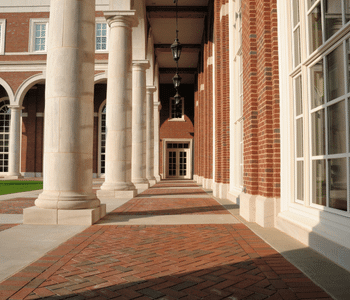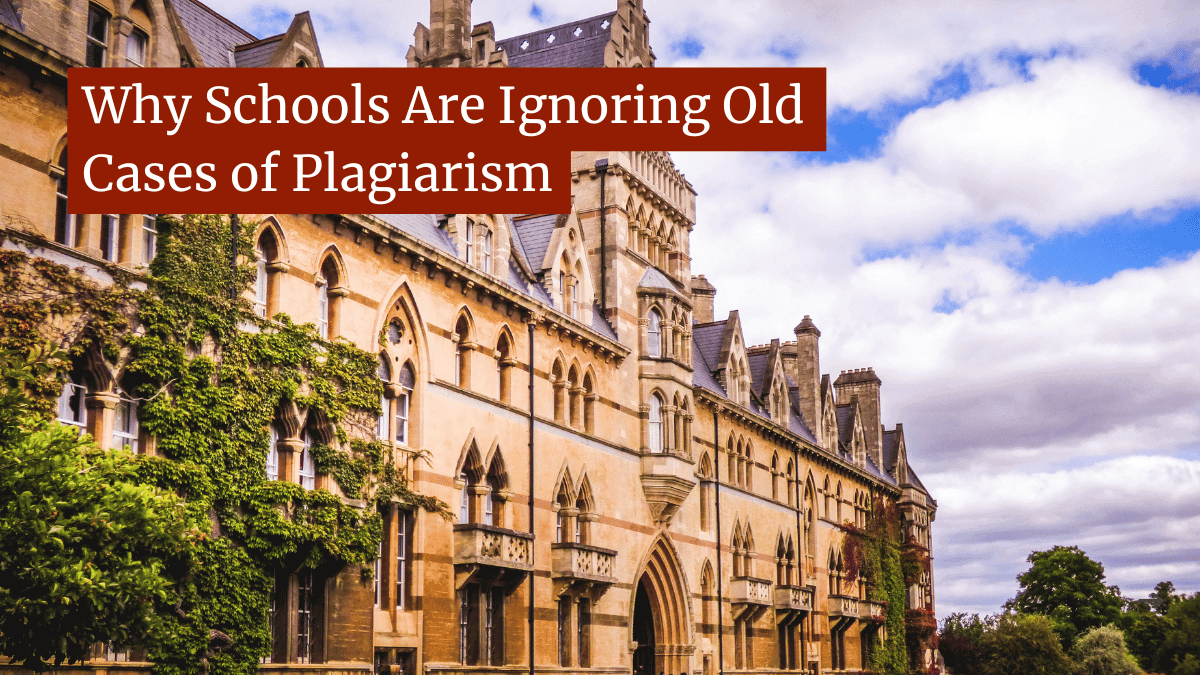Why Schools Are Ignoring Old Cases of Plagiarism

It’s an increasingly common story. An individual, usually a public figure, is discovered to have committed some degree of plagiarism in their thesis or dissertation.
Though the allegations go on to become a major news story, at least locally, the University itself either takes no action or only takes very limited steps to address the issue.
This seems odd to many outsiders. Courts have regularly upheld the right of universities to revoke degrees (at least in the United States) and the story isn’t just a black mark on the individual, but the school that unwittingly allowed the alleged plagiarism to happen.
A strong investigation followed by swift action could be a way for the school to undo the damage done to their reputation and further protect academic integrity within their halls.
However, that is becoming increasingly rare, with the people reporting old cases of plagiarism to schools finding either disinterest or outright silence.
But as frustrating as that may be for those investigating the cases, the reason is simple: It doesn’t make sense for schools to aggressively pursue cases of plagiarism by former students.
The Problem with Post-Graduation Plagiarism
From the prospective of a university, very little good can come from tackling such a case of plagiarism.
Plagiarism investigations are time-consuming, expensive and, when the student has already received their degree, there are severe limitations on what the schools can do in response.
With students currently in school, these are not problems. Schools can levy a wide variety of punishments, from redoing an assignment all the way to expulsion. Furthermore, all the people involved in the case and all the evidence are there, making investigations easier.
By contrast, reviewing a plagiarism allegation that’s even just a few years old is many times more complicated, as the people involved have likely moved on, documents and other evidence may be lost and memories have faded.
In short, such cases are significantly more difficult to prosecute and, if a decision is rendered against the student, it’s likely that the case will end up in a court of law. That’s because a revoked degree is more likely to spark a legal battle than an active student being disciplined before the degree is handed down.
Because of this, schools have a strong motivation to either ignore these cases or, if they do act, to work with the former student collaboratively to address the issue while leaving the degree intact.
It’s a frustrating scene, especially when investigators feel confident they found serious plagiarism in a former student’s work, but fail to see any action taken to stop it.
Other Issues
Beyond the issues listed above, there’s another challenge schools face when dealing with such cases: Student privacy laws.
Student privacy laws are complex and are often a mashup of federal and state regulations mixed with the school’s own policies. However, it’s suffice to say that, despite graduating years ago, the school still has duties to their privacy.
This means that schools can’t publish details about any investigation that they are undertaking or, in some cases, can’t even say that they are undertaking one.
As such, there’s no real incentive for the school to start a case at all. Much of the benefit to the school in addressing such a case is because it would appear proactive on academic integrity. However, with such tight restrictions on what they can and cannot share, schools really don’t gain much at all.
In short, even if the school does carry out a thorough investigation, it’s unlikely that we’ll hear much of anything about it at all. Often times, the only way we know an investigation has been done it all is when the allegedly plagiarized material has been removed from public access.
As such, even when schools do take such allegations seriously and do investigate the claims, the public may be completely unaware. Though we might see this alleged plagiarist as a politician or celebrity, to the school, they’re still a student and that grants their privacy a lot of protection.
And that, brings us to another key problem: The allegations often come from questionable sources.
The time it takes to investigate a dissertation or thesis for plagiarism is significant, and probably not worth it for a paper that no one has looked at in years. Because of this, many of the people who discover such plagiarism are political or ideological opponents of the person seeking to hurt their reputation and standing rather than improve academic integrity.
This means that schools investigating such cases are often entering a very charged that they likely want to avoid. It also means that they have to separate severe accusations backed up with provable facts from what amounts to just plain vitriol.
However, despite all the understandable reasons for ignoring them, investigating old cases is still the right thing to do, even if the reasons are a bit more obscure.
Why Schools Should Investigate Old Cases
None of this is to excuse schools from their obligations here. It is grossly unfair to hold new students to a higher standard than former ones. If a degree should not have been awarded, it should be revoked.
So yes, it is difficult, expensive, time-consuming and may not provide the immediate reputation fix that schools are hoping for. However, there are still very good reasons for putting up with the issues.
- Fairness: As stated above, holding current students to a higher standard than former ones is unfair. Addressing older cases not only creates better parity, but sends a message to current students.
- Finding Flaws: If plagiarism managed to slip through the cracks in a relatively recent case, it’s important to find out how and what processes need to be improved or added to prevent it from happening in the future. That analysis can’t take place without an investigation into the allegations.
- Reputational Woes: While it is true that schools are limited in what they can and cannot talk about with regards to such an investigation, the mere fact that one is clearly happening or has happened, can provide some relief. It’s better than being seen as a school that completely ignores plagiarism.
In short, while the temptation to ignore or sideline such cases is very understandable, it sets a bad precedent and prevents schools from getting better at addressing these issues in real time.
Bottom Line
Multiple times per month, I get emails about plagiarism cases that were brought to the school, and the person who discovered the issues is baffled as to why the school hasn’t taken up the case.
I explain to them that there are a myriad of reasons why schools don’t address these cases, or do it very quietly if they do. Regardless of how serious a school takes plagiarism, there are many forces pushing them to do less in this particular space.
While I still believe that this is both an ethical and a practical responsibility for schools to investigate old cases, I am still very sympathetic with the schools. I would not want to open up a complicated investigation that will thrust me into a charged issue where I have limited recourse regardless of what I find and know it’s likely to end up in court if the findings go a certain way.
Still, academic integrity is not a static thing. It is always evolving, always changing. By not protecting it whenever possible, that sets standards that become norms. The norms created by ignoring such cases are not positive.
Simply put, there are no easy answers here, and that includes ignoring such issues. Every response is difficult and has consequences, some are just more immediate and obvious than others.
Want to Reuse or Republish this Content?
If you want to feature this article in your site, classroom or elsewhere, just let us know! We usually grant permission within 24 hours.
